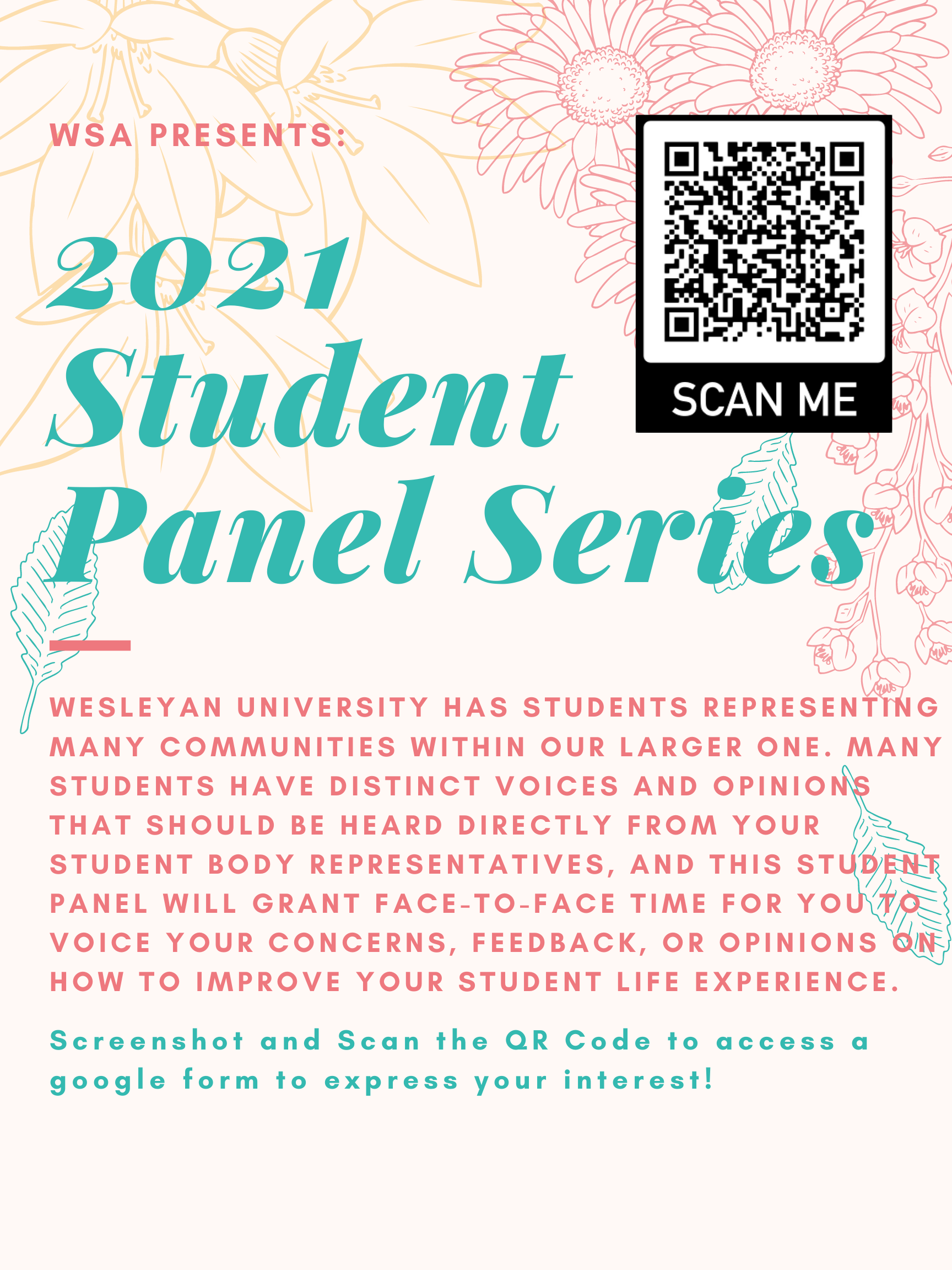
c/o imdb.com
The Wesleyan Student Assembly (WSA) introduced a new student panel series on Sunday, April 11, as a part of the Equity and Inclusion Committee’s (EIC) commitment to bring multicultural programming to the WSA every semester. The panels are town-hall style and feature students grouped by area of concern. The series aims to make the WSA more accessible and representative of all members of the student body.
“We wanted to create a series where students within respective communities could have face-time with their elected student representatives, to create bridges between our communities, and have students express their concerns and feedback on things we might be able to work on, to make their student life at Wes more suitable for their needs,” WSA senator Ariana Baez ’22 said during the WSA meeting on Sunday, April 11.
The first panel featured Asian- and Asian American-identifying students, including Co-Chair of the Asian American Student Collective (AASC) Emily Moon ’20 (a current graduate student), President of the Korean Student Association Brian Kim ’22, WSA senator and Co-Chair of the AASC Chaiyeon Lee ’22, WSA Chief of Staff Isha Jha ’23, and WSA senator Elizabeth Ouanemalay ’23.
“After the prevalence in anti-Asian hate crimes within the United States, it made complete sense for the first group to be Asian- and Asian American-identifying students on campus, because there is a common sentiment circulating that they [have] felt unheard, that they [have] felt their stories were invalidated by the community members, and they [haven’t felt] safe,” Baez said in an interview with The Argus.
The conversation primarily focused on four main issues. The first concern was a lack of education and resources regarding how to report microaggressions. Baez has since followed up with AASC to discuss how to combat this and make a plan to work with administrators on this issue during the summer.
The second issue was frustration with the Student Budget Committee’s (SBC) policies and communication about funding surrounding preparing and ordering food for groups and events in which the food has cultural significance. While the SBC can now fund $300 worth of ingredients and cooking supplies where food holds cultural significance for groups, this information has not been well circulated, presenting a barrier to using the available resources.
The third topic discussed was fundraising requirements around the sale of food. Specifically, fundraiser offerings must not overlap with any Bon Appetit offerings and must be prepared in an industrial kitchen. These restrictions provide a significant barrier against cultural group fundraising efforts on campus. Baez hopes the WSA leadership (including herself) will meet with Bon Appetit Resident District Manager Michael Strumpf, Director of Usdan University Center Michelle Myers-Brown, and Vice President for Student Affairs Michael Whaley to discuss this issue and work to change the policy.
The last issue raised was that while the University often asks marginalized students what they need to feel supported, these questions have had little to no follow-up, and many students feel like they are receiving empty promises. Baez has expressed this to the Office of Equity and Inclusion and has plans to work with the office and Office of Equity and Inclusion Social Media Intern Tyler Jenkins ’22 to combat this.
The discussions at this panel and future panels aim to enable the WSA to make tangible progress and better represent all students.
“[The student panel series] institutionalizes going out to students and actually receiving feedback, hearing their concerns, and then making action points on how we can address those concerns, and then making plans of how we can execute it in an efficient manner,” Baez said in an interview with The Argus.
This is a personal subject for Baez, as she joined the WSA in hopes of accomplishing these goals.
“Prior to joining the WSA, I had these misconceptions that the WSA was not a welcome entity for the student body, regardless of its existence being to represent the student body,” said Baez in an interview with the Argus. “I felt like I personally couldn’t express my concerns. It just felt very disconnected from actually hearing face-to-face student concerns, and that’s something that I’ve really been passionate about changing: the dialogue and the reputation of the WSA and how it’s received by the student body.”
Next week, the panel will feature student-athletes. Going forward, these panels are an opportunity available to all students and groups who want to express their concerns and opinions to the WSA. Students interested in participating should fill out this form.
Hallie Sternberg can be reached at hsternberg@wesleyan.edu or on Twitter @halsternberg.